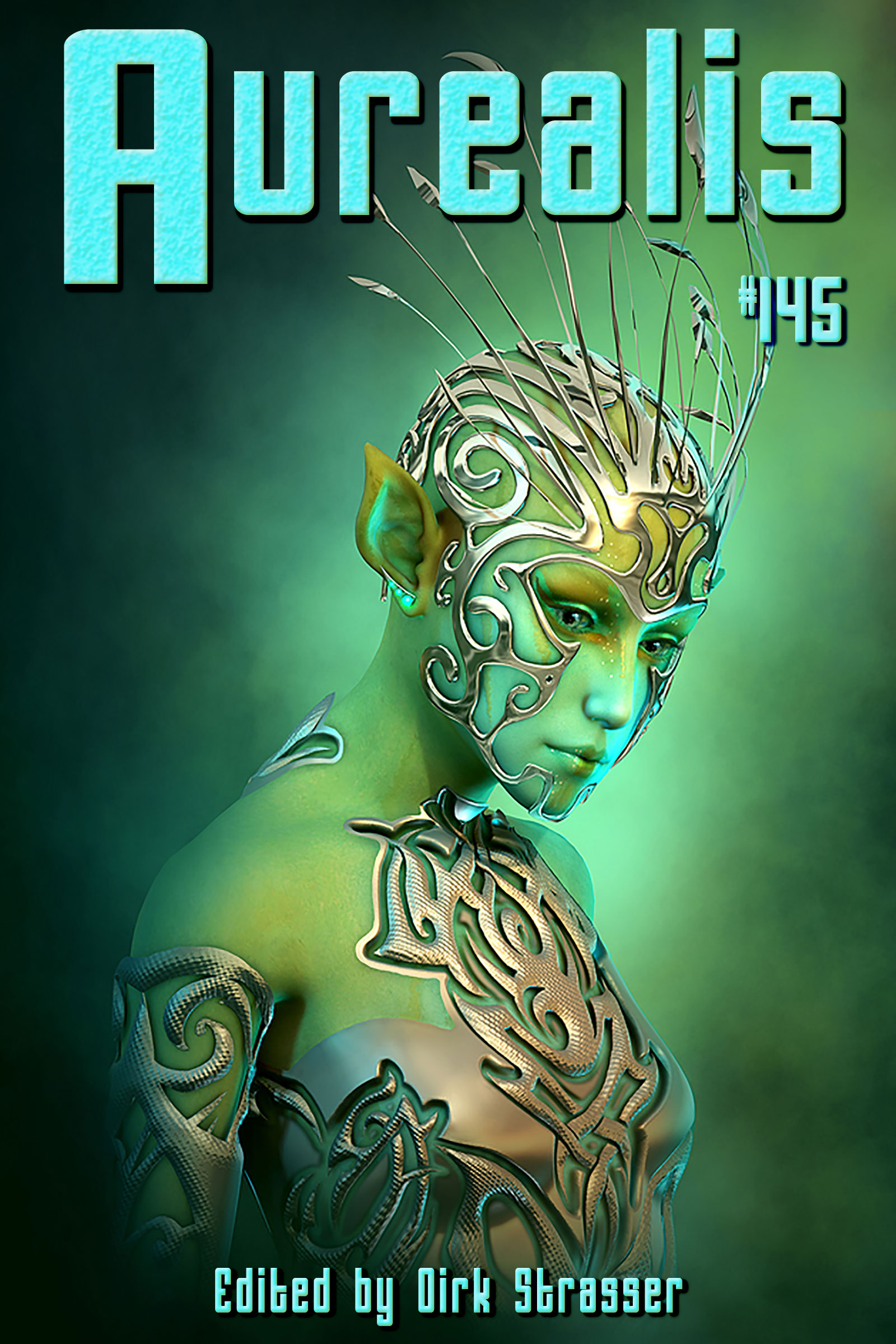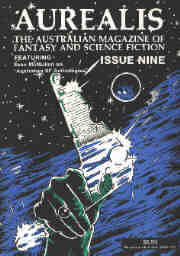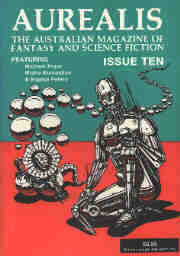Aurealis #145
$3.99
Another Aurealis issue chock full of speculative goodness! Carol Ryles opens the issue with ‘She Who Played for Morrocks’ which explores the relationships and misunderstandings between different species of human. John Higgins serves up a tense, creepy tale in ‘The List’, while Clark Lewis’ ‘The Corner of Seventh and Marino’ riffs on the strange and unbelievable things that can happen in forests.
- From the Cloud — Dirk Strasser
- She Who Played for Morrocks — Carol Ryles
- The List — John Higgins
- The Corner of Seventh and Marino — Clark Lewis
- Dragons: World Origins, Evil and Knowledge Throughout History — Amy Laurens
- How Mary Shelley Continues to Influence Modern Science Fiction — Claire Fitzpatrick
- Science Fiction in the Time of Pandemics — Simon Foster
Can we talk a little about mega-selling authors? Not just the best-sellers. I want to talk about those writers that are selling so many copies that they are in an entirely separate category. The ones who have consistently written books that millions of people want to read. The ones that everyone’s heard of. The ones that are regularly made into movies.
I’m sure I’m not the only writer that’s asked the question: What are these mega-sellers doing right?
There’s a saying in music that someone is playing ‘in the pocket’. It means they are in the centre of the beat and have total, apparently effortless command of technique. We’re not just talking here about the control they have. This isn’t about cold precision. When someone is playing in the pocket, the total effect appears completely natural, as if it could only be this way.
This is why I think many people are a bit dismissive of mega-seller Stephen King. He writes in the pocket. He appears to achieve his effects without effort, as if it was part of his DNA. This is particularly true of 11.22.63 (2011). I consider this novel to be Stephen King’s masterpiece.
So how has he done this? In many ways, but I’ll touch on a couple.
In-the-pocket writing is hard to analyse because you get so enmeshed with the work that you are swept along with the narrative and don’t want to untangle how it’s being done. One thing I do know. It’s not an accident. Let’s look at the opening lines of 11.22.63:
I have never been what you’d call a crying man.
The strength of this opening sentence is the way it gives so much with so few words.
First, in one sentence we have a sense of the voice and tone of the story. We also already understand an important facet of the protagonist’s character: slightly distanced, maybe emotionally stunted by some events in his past. More importantly, the emotional power of this opening sentence builds through the path of this 700+ page novel, only reaching its full power at the very end, where both the protagonist and reader are left genuinely sobbing bitter-sweet tears. The structure, narrative style, plotline, emotional pay-off, and ending are all in this opening sentence. This is foreshadowing on steroids.
It’s not an accident.
The other element I want to touch on is a powerful plot structure device that King uses. 11.22.63 is a time travel story, which is one of my favourite sub-genres. It’s not a horror novel. It’s not the kind of thing that King usually writes and, after reading his fantasy The Gunslinger (1982), I was wary of him writing out of his genre of expertise. However, he puts a spin on the time-travel plot mechanism that provides tension in spades. ‘The past doesn’t want to change’ is repeated throughout the book. It can be changed, but things just happen to block people who are trying to change it. The past tries to hold onto the path that had been taken. As a plot device, this is brilliant. The protagonist constantly has to fight the obstacles that this natural tendency of the past throws in front of him. The bigger the change being attempted, the greater the obstacles. What happens when a time traveller is trying to change the fate of the entire world? This is plotting on a mega scale.
It’s not an accident.
All the best from the cloud!
Dirk Strasser
From She Who Played for Morrocks by Carol Ryles:
The moon is full, and the sea alive with luminescence. As my dinghy rocks, I hold my flute above the water and let it fall. The morrock catches it, holds it aloft to keep it dry.
From The List by John Higgins:
Jeremy knew it had to be a mistake when they called him. He was twenty-eight. He had a wife. They had a baby. How could he be on the list?
From The Corner of Seventh and Marino by Clark Lewis:
In town, the first thing kids are taught is not to follow the things their parents can’t see. In town, the first thing new parents are taught is to watch where their children wander, to never let the little ones slip too far from sight, lest the green swallow them whole.
From Dragons: World Origins, Evil and Knowledge Throughout History by Amy Laurens:
Like many other paranormal or mythological creatures, western dragons have three distinct periods in their history, with their symbolic meaning different in each period.
From How Mary Shelley Continues to Influence Modern Science Fiction by Claire Fitzpatrick:
1816 is known as the year without summer. It is also known as the year science fiction was born.
From Science Fiction in the Time of Pandemics by Simon Foster:
We launched the Sydney Science Fiction Film Festival in November 2020. A small window of opportunity presented itself, between the first wave of COVID-19 and the onset of the Delta variant





